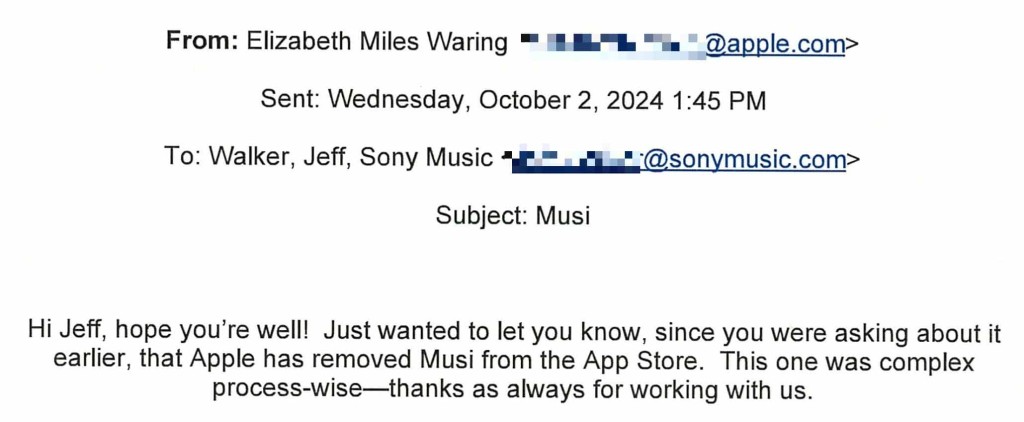
Musi and Apple Battle Over App Store Removal, App Devs Accuse Apple of Improper Sanctions Motion Use
- Musi’s developers allege Apple conducted an orchestrated campaign to suppress the app’s business.
- Apple’s motion is baseless, the developer said, asking the court to sanction Apple for improper use of a sanctions motion.
- The dispute raises core questions around app governance, industry influence, and legal process in information security.
A highly publicized legal dispute between music streaming app Musi and tech giant Apple is intensifying, with the app developer accusing Steve Jobs’ company in a legal motion of orchestrating the takedown.
Last September, Apple removed Musi from its App Store, following mounting pressure from music industry groups and repeated infringement complaints. While the removal itself generated controversy, recent developments have underscored the complexity and opacity of app store enforcement.
After Musi was de-listed, the company initially pursued private remediation channels. However, as Apple declined to reinstate the app, Musi filed suit, alleging an orchestrated campaign to suppress its business.
According to Musi, Apple coordinated “backroom conversations” with music industry stakeholders, a process the app developer claims was designed to protect the interests of powerful rights holders at the expense of smaller innovators.
Apple vigorously contests these claims. Its legal team has moved for court sanctions against Musi, arguing that discovery refuted the existence of collusion or conspiracy. Apple asserts that Musi advanced unsupported allegations, some of which, Apple says, are built on fabricated evidence—including allegedly manipulating an email to facilitate earlier reinstatement.
The dispute escalated last week when Musi not only opposed Apple’s motion but requested reciprocal sanctions, arguing that Apple’s move constitutes intimidation and harassment. Musi stands by its narrative, citing as evidence internal Apple communications and a timeline of direct interactions with Sony Music, YouTube, and the National Music Publishers Association.
The correspondence suggests ongoing dialogue regarding Musi’s fate, including specific incidents where Apple sought “a path forward” for removal in response to industry input.
Apple maintains that it retains unilateral authority to remove apps and that its actions fell well within established policy frameworks, reflecting no bad faith or undue industry pressure.
Musi, by contrast, argues that the removal process was anything but routine, describing it as a “complex process” involving sustained behind-the-scenes advocacy by major music entities.










